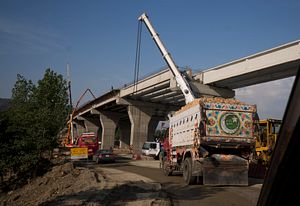It is still early days for Prime Minister Imran Khan and his PTI government, but a series of self-inflicted wounds have already led many to strongly criticize the government’s performance. Many, including both PTI and non-PTI supporters, rightfully say that while certain decisions can be criticized, it is still too early to critique the government’s performance. They have a point, but it’s equally fair to call out the missteps as they occur, such as the craven way in which the government capitulated to religious extremists who demanded the removal of prominent economist Atif Mian from the Economic Advisory Council. It is important to call out the PTI government on these issues, for the earlier the problems are called out, and heed paid to fair criticism, the earlier we can hope for a course correction.
There has been some discussion about the government’s economic agenda, but it has thus far been focused on soundbites and popular slogans, such as recovering “stolen wealth” from abroad and seeking donations from overseas Pakistanis for building dams. The government has yet to share an economic policy framework, and while the government must be given some space to set an agenda, it is important to remind Imran Khan and his government about what they should be focused on.
The motto should be simple: fix the finances and reform the bureaucracy to boost sustainable business growth.
Pakistan’s domestic budgetary mess, coupled with an unsustainable external sector, are near-term risks that need a resolution. The current situation cannot be averted by loans from friendly countries, commercial borrowing, or remittances from overseas Pakistanis. Pakistan will most likely require an IMF program, and the sooner the government shapes popular opinion to build support for this inevitability, the better. Such a program will require the PTI to follow through on unpopular actions like the proposed gas tariff hike. These, however, are small steps that must be followed by reforms that phase out ineffective subsidies, privatize state-owned enterprises that are bleeding money, and end the cycle of recurring circular debt in the energy sector.
Bureaucratic reform should be another priority. Experts like Nadeem Haque and Ishrat Husain have proposed reforms that seek to modernize Pakistan’s bureaucracy and develop an administrative system that can efficiently carry out tasks in a modern and growth-oriented economy. These reforms are essential for releasing Pakistan from the shackles of an administrative system developed during the colonial era, when extraction of resources and wealth by the British was the first order of business. A sovereign nation with 220 million citizens cannot develop under such an extractive system of governance, and hopefully Husain will be given the mandate to execute his agenda.
Finally, the government must make a push to promote sustainable business growth. In the last few decades, Pakistan’s economy has experienced a steady erosion of its competitive advantage. The growth witnessed has been in fits and starts, primarily driven by influxes of foreign aid or borrowing that leads to import-led growth. Statutory Regulatory Orders (SROs) have picked winners and losers and continued protection has been offered to globally uncompetitive sectors like auto manufacturing.
This needs to change, and while industry must be supported by promoting a growth-oriented environment, a clear and measurable set of targets must be set for sectors that have a realistic potential to be globally competitive, such as information technology and pharmaceutical manufacturing. Should they fail to improve their competitiveness, protection offered to uncompetitive sectors must be phased out to promote an efficient allocation of resources.
Pursuing this agenda will not be easy. There will be a backlash from the beneficiaries of the status quo, including from within the government. Every government since the 1990s has tried to reform the bureaucracy, only to see entrenched interests fight back and derail the process. Businesses have for decades succeeded in protecting their own slice of the pie. Opposition parties may coalesce to score political points, particularly around the issue of privatizing state-owned enterprises and deregulating energy markets.
To push reforms and maneuver around these status quo powers will be the real test of Imran Khan’s government. We do not yet know what the reforms framework will be for this government, but it must be laser-focused on the above three areas. This may be an ambitious agenda, and it is likely that the PTI will not succeed in all that it sets out to do. However, Khan must make a diehard attempt at executing these reforms, because the fact of the matter is that without these, Pakistan’s economy will continue to sputter from one crisis to another.
On a separate note, I vividly remember working with my team on an infrastructure finance project in graduate school. It was about a 264 kilometer stretch of the A2 Motorway in Poland that cost almost a billion euros. Our task: develop a financial plan to raise funding for the project, including 242 million euros in commercial loans. The numbers were a tough sell – there were too many risks – and we ultimately decided that commercials bank may shy away. We recommended that the European Investment Bank (EIB) would be the only source of borrowing for the Polish government. Perhaps we should have recommended that the Polish government ask for donations from overseas Polish citizens to meet its financing needs. That surely would have led to an earful from my professor!
Uzair Younus is a Director at Albright Stonebridge Group. Views expressed are his own.

































